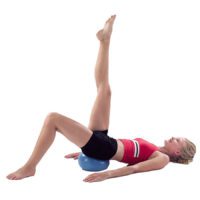Acupuncture

Acupuncture: A Physiotherapist’s Guide to Pain Relief
What is Acupuncture?
Acupuncture, a cornerstone of traditional Chinese medicine, has carved its niche in modern therapeutic practices with its profound efficacy in pain management. Its roots, spanning over 5000 years, suggest a harmonious balance of life’s energy, Qi, as essential for optimal health. Physiotherapists around the globe now integrate acupuncture into holistic treatment plans, aimed at alleviating pain and enhancing recovery.
What Does Acupuncture Actually Do?
At the heart of acupuncture lies the belief in Qi, an energy force flowing through the body’s meridians. Disruptions in Qi flow are thought to cause health issues. By inserting fine needles at specific points, acupuncture aims to restore energy balance, thereby promoting health and well-being.
Does Acupuncture Help Nerve Pain?
Recent research underscores acupuncture’s role in pain relief, particularly for chronic conditions. It stimulates the nervous system, releasing endorphins and other natural painkillers. This process reduces pain and inflammation, aiding in recovery.
What are the Long Term Benefits of Acupuncture?
Acupuncture, an ancient practice rooted in traditional Chinese medicine, offers several long-term benefits for both physical and mental health. When incorporated into regular healthcare routines, acupuncture can provide sustained improvements in various areas:
- Pain Management: One of the most recognised long-term benefits of acupuncture is its effectiveness in managing chronic pain, such as arthritis, back pain, neck pain, and headaches. Regular sessions can lead to significant reductions in pain intensity and frequency, improving quality of life.
- Stress and Anxiety Reduction: Acupuncture can help balance the body’s stress hormones, such as cortisol, thereby reducing stress levels and anxiety. This calming effect can be long-lasting, aiding in the management of stress-related symptoms and improving mental well-being.
- Improved Sleep: By promoting relaxation and addressing the root causes of sleep disturbances, acupuncture can improve sleep patterns. Individuals suffering from insomnia or irregular sleep may find acupuncture sessions beneficial in achieving longer and more restorative sleep over time.
- Enhanced Immune System: Acupuncture can boost the immune system by stimulating the body’s natural defense mechanisms. This can lead to reduced susceptibility to infections and a general improvement in health and vitality.
- Increased Energy and Well-being: Many people report a noticeable increase in energy levels and an overall sense of well-being following acupuncture treatment. This can be attributed to the balancing effect acupuncture has on the body’s Qi, or vital energy, leading to improved bodily functions and mood.
- Digestive Health: Acupuncture can help regulate the digestive system, addressing issues such as irritable bowel syndrome (IBS), constipation, and acid reflux. Improved digestion contributes to better nutrient absorption and overall health.
- Cardiovascular Health: Some studies suggest that acupuncture can have positive effects on blood pressure and circulation, reducing the risk of heart disease. By promoting relaxation and reducing stress, acupuncture can indirectly benefit heart health.
- Reduction in Medication Dependency: With its pain management and health-promoting benefits, acupuncture may reduce the need for certain medications, such as painkillers or anti-anxiety drugs, thereby minimizing the risk of side effects associated with long-term medication use.
- Menstrual and Reproductive Health: Women may experience benefits from acupuncture in the management of menstrual pain, irregular cycles, and fertility issues. Acupuncture is often used as a complementary treatment for enhancing reproductive health.
- Neurological Benefits: There is growing evidence that acupuncture can be beneficial in managing symptoms of neurological conditions, such as Parkinson’s disease, and in aiding recovery from strokes.
It’s important to note that the effectiveness of acupuncture can vary from person to person, and it may work best when combined with other treatment modalities. Consulting with a healthcare professional to discuss how acupuncture might fit into your overall health plan is advisable.
Please note that PhysioWorks physiotherapists only treat patients within their scope of practice. In most cases your physiotherapist will only treat you for pain,muscle and joint issues.
What Conditions May Be Treated by Acupuncture?
- Back and Neck Pain: Acupuncture provides significant relief by targeting the deep-seated tensions.
- Shoulder and Knee Pain: It addresses the discomfort and aids in mobility.
- Sciatica: Acupuncture’s targeted approach can alleviate nerve pain effectively.
- Headaches and Muscle Pain: It offers a natural solution to chronic headaches and muscle spasms.
- Joint Pain: Acupuncture restores joint health and functionality.
What to Do? Seeking Professional Advice
Before considering acupuncture, consult a physiotherapist for a comprehensive assessment. Your treatment plan will be tailored to your specific needs, ensuring acupuncture’s suitability for your condition. Remember, the response to treatment varies, and so will your journey to recovery.
New Research and Insights
Emerging studies continue to shed light on acupuncture’s effectiveness, revealing its potential to improve sleep, enhance digestive health, and boost mental well-being. These benefits, coupled with pain relief, make acupuncture a compelling option for those seeking a holistic approach to health.
Conclusion
Acupuncture stands as a testament to the power of traditional medicine in contemporary healthcare. By addressing the root causes of pain and promoting the body’s natural healing processes, it offers a path to recovery and well-being. Consult your physiotherapist to explore how acupuncture can be integrated into your health regimen.
Rochedale - Call 38410277
Book Online: RochedaleSalisbury - Call 32751044
Book Online: SalisburySandgate - Call 32691122
Book Online: SandgateRelated Articles
- Acupuncture & Dry Needling For Muscle And Joint Pain Relief: Readers will find comprehensive insights into how acupuncture and dry needling can aid in recovery and pain relief.
- What Ailments Can Acupuncture Assist With?: This article explores the variety of conditions acupuncture can help relieve, offering readers a broad perspective on its applications.
- Sciatica Treatment & Management Strategies: Offers an overview of sciatica management, including the role of acupuncture among the treatment options.
- Frozen Shoulder (Adhesive Capsulitis): Discusses how acupuncture can be part of the treatment plan for shoulder pain relief, specifically for conditions like frozen shoulder.
- Jaw Pain: Highlights the benefits of acupuncture in treating TMJ dysfunction and jaw pain, providing a different angle on acupuncture’s versatility.
- Bulging Disc Explained: Symptoms, Causes, Treatments, Physio: Though not directly mentioning acupuncture, this article discusses various treatment options for bulging discs, where acupuncture could be implied as a complementary therapy.














































